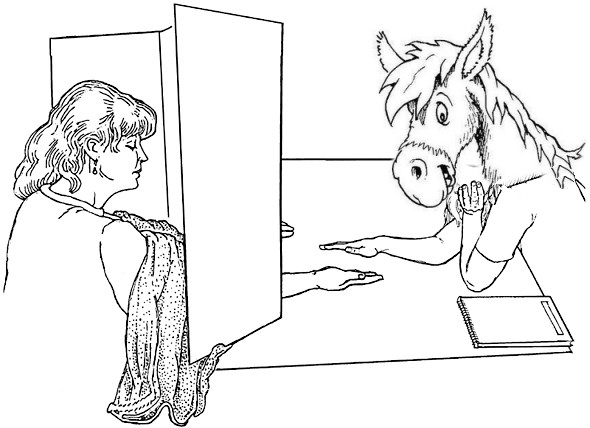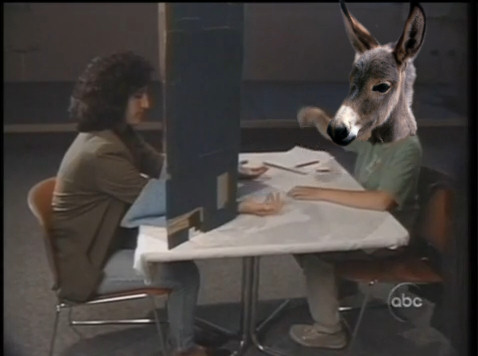Last updated on August 6, 2009.
This message had its first half originally posted on Michael Prescott's blog, this link.
Any addition to what was originally posted on the afore mentioned blog will be highlighted in this color, bold type.
Relevant Links to this discussion:
Sebastian Dieguez's review of Irreducible Mind. This Link.
Michael Prescott's blog, discussing Dieguez's review. This Link.
Jime Sayaka's blog discussing Dieguez's review. This Link and This Link.
Sebastian Dieguez's blog, starting with the discussion of this issue. This Link.
My Own (Julio Siqueira's) critical review of Irreducible Mind. This Link.
My Own further critical reflections on it (stimulated by Jime). This Link.
Irreducible Skepticism – a Critique of Sebastian Dieguez’s Review of the Book “Irreducible Mind.”

This is a reply to Sebastian Dieguez’s review as published in the Skeptic Magazine (this link). Before going to the points that I want to highlight, I would like to say that, as I feel, Sebastian was driven, from the bottom of his heart, by justified bitter feelings. Similarly, his main complaints about Irreducible Mind (IM) do have a kernel of legitimacy. However, in my view, he strayed far far away from justifiability and from legitimacy in the actual way that he wrote his review. And he further worsened things afterwards in his reply to critics. In my humble opinion, I think his mistakes and the reasons behind his mistakes are of deep concern to all of us (he included), and, in the end, it may be (may be) that we all share a part in the guilt for such things. May it be that, in the not far far away future, we will be able to live in a world where being an atheist-materialist will not be a sin, and being a spiritualist will not be a stupidity. For it is my sincere belief that, right now, it is *not* a sin to be an atheist materialist, and it is *not* stupidity to be a spiritualist. So, if this truth is really the Truth, let the Truth be Known. But, going past stupid poetry…
Sebastian said:
“two major problems with current views of what the mind is and how it works… …First of all--and this is the implicit reproach addressed to "mainstream" cognitive psychologists, philosophers of mind and neuroscientists (all treated as an undifferentiated package sharing a similar worldview, namely materialism)--we just do not have a full and satisfactory physicalist explanation of how the brain generates the mind. The second problem, constituting the raison d'etre of this lengthy volume, is that what the authors portray as establishment science has along the years consistently and purposefully blinded itself to a body of evidence that flatly contradicts its most cherished tenets, and as a consequence, it has narrowed its scope to the least significant aspects of human experience.”
My Comment:
I do not really feel that the authors treat their opponents as an *undifferentiated* bunch. Also, I do not feel that they consider that mainstream science has limited itself to dealing with the *least* significant aspects of human experience.
Sebastian said:
“the book is painstakingly redundant, astoundingly arrogant in its claims and intents, utterly humorless, contains no figures, boxes or tables whatsoever, and what's more, is unaffordable to its targeted audience”
My Comment:
This above is something readers may have different reactions to. I did not feel the authors as being arrogant. As to humor, this was the complaint that struck me the most. It reminds me that a great amount of the “skeptic’s stuff” (articles, debunking, etc) is filled with “humor.” Recently I watched the video “Breaking the Spell” featuring Daniel Dennett preceded by an introduction by Michael Shermer, live to an audience of some few tens of scientists in California, if my memory serves me well. Well, the introduction by Shermer was so “funny” (not to me…) that people kept laughing during most of Dennett’s speech, even though Dennett was *not* trying to be funny. So perhaps it is time the skeptic movement started reevaluating its use of… “humor.” And, similarly, its negative views towards “humorless works.”
Sebastian said:
“However, the originality of IM lies in drawing attention to what the authors themselves call ‘rogue phenomena,’ which they think are inherently incompatible with current materialistic views of the mind.”
My Comment:
Sebastian asked to one of his critics if he (Sebastian) was not supposed to be qualified to review IM. Well, I think Sebastian IS qualified. And his feedbacks could have been highly informative in many instances. This above is one of such. He could have pointed out how some of the phenomena described in the book might be accommodated within the framework of existing scientific paradigms and bodies of knowledge.
Sebastian said:
“I have an abridged version of this book on my pseudoscience shelf, but I confess that until now I never differentiated it from other pompous and boring compendia of weird anecdotes, ghost stories and wacky theories from the turn of the century. Apparently I was unfair: Myers seems in a different league. For one thing, he was among the first to have theorized about what would be later known as ‘the unconscious.’ However, the reason Myers is now forgotten in non-occult circles is that Human Personality is replete with ghost stories and mediums of all sorts, which understandably has obscured the few interesting insights that could have been found in there.”
My Comment:
Later on (in Michael Prescott’s blog), Sebastian said that he sort of lied in this passage above, and that actually he knew a lot about Myers (skeptic readers might ask themselves if Sebastian kept lying in his second assertion, or if he was lying merely in his assertion number 1 or number 2, since he had already acknowledged having lied before; but, providentially, he was posting this in the nest of believers, so no one would doubt his words…
Sebastian said:
“Accordingly, the reader is warned from the onset that the reality of paranormal phenomena (psi) is taken for granted in IM. For those not convinced, Kelly, et al. direct you to the references listed in the appendix, where all the evidence can be found.”
My Comment:
I made a similar complaint against Braude’s “Immortal Remains.”
http://www.criticandokardec.com.br/amazon_reviews.htm#braude
I think the authors should have discussed this issue a little, in perhaps forty or fifty pages. But then again, check out the comment below…
Sebastian said:
…“really translates as ‘we realize that what we just wrote sounds crazy, but there are some books that say it's true, and we chose to believe them.’ ”
My Comment:
I really think it is not that they *chose* to *believe*. Instead they were *scientifically convinced* by the *data*. That is what happened to me. And that is what I think happened to them as well. And I am sure Sebastian is not aware of this data. If he were, he would end up being either, 1, a “believer” (that is, a true scientist that accepted the phenomenon); 2, well informed but unconvinced and highly qualified to engage in rich exchange of viewpoints with those already convinced. If Sebastian ends up becoming 2, it will be an enormous gain to us all.
Sebastian said:
“The ‘full range of human experience’ is displayed across nine chapters, each more than 100 pages long, that ramble on the limits of ‘conventional’ neuroscience, while claiming that a wide array of loosely associated phenomena are simply incompatible with the idea that the brain is the seat of the mind in any conventional sense. These phenomena include placebo effects, stigmata, sudden graying of the hair, reincarnation, maternal impressions, hypnotic suggestions, distant healing, creative genius, multiple personalities, meditation, mystical experiences, near-death experiences (NDEs), out-of-body experiences (OBEs), supernormal motor automatisms, apparitions, calculating prodigies, and so forth. Parts of the book deal unashamedly, and approvingly, with mediumship and levitation, always with a perfectly straight face. The general strategy is to proceed from rather commonplace, if sometimes intriguing phenomena, onto the really wild stuff, pretending that established facts, unresolved questions and plain crackpottery were somehow all part of the same continuum of legitimate scientific interest.
My Comment:
Let’s go by parts. First, “nine chapters, each more than 100 pages long”
Chapter 1- 44 pages
Chapter 2- 67 pages
Chapter 3- 119 pages
Chapter 4- 58 pages
Chapter 5- 62 pages
Chapter 6- 54 pages
Chapter 7- 69 pages
Chapter 8- 78 pages
Chapter 9- 62 pages
Should I be asking for a refund from www.amazon.com due to pages-missing? Did Sebastian come to the “each more than 100 pages long” figure by dividing 800 by 9 and finding the result 105? Was he, once more, merely “sort of lying”? Anyway, questionable sarcasm appart, that point is a rather sensitive one. This is the kind of mistake that may discredit to a great extent what an author (in this case, Sebastian) is trying to convey. Just like Csicop physicist Victor Stenger got discredited (or should have...) by citing an article that had half of its tables summing up more than 100% (this link).
Still regarding the last paragraph from Sebastian, I would like to focus on two phrases: 1- “Parts of the book deal unashamedly, and approvingly, with mediumship and levitation, always with a perfectly straight face.” There seems indeed to be very interesting evidence coming from mediumship, especially - but not only - from Mrs. Piper. No one should be ashamed of talking about these matters if one is well informed. But… I confess that here it is *my claim* that there is good evidence coming from mediumship. However, if *Sebastian* claims the authors should be ashamed and all of mediumship is just crackpottery, he’d better know deeply what his is talking about. And it seems, with all due respect, that Sebastian doesn’t. And the second phrase: 2- “ unresolved questions and plain crackpottery were somehow all part of the same continuum of legitimate scientific interest.” What I think, in regards to these authors, is that they are very meticulous and careful. I do not believe they would support crackpottery. But the only way to know for sure is to analyze very carefully the evidence. One instance where I did such careful analysis can be found in the link below:
http://www.criticandokardec.com.br/imad_elawar_revisited.html
I am sure Sebastian will find it interesting. Not only did I spot mistakes (serious ones) from the believers. I spotted serious mistakes from the skeptics too. That seems to be the rule.
Sebastian said:
“Note here that NDEs are not said to occur during a fiat EEG, but merely under general brain states that are somehow deemed unable to underlie mental states or at least to allow their recall. It strikes me as an interesting use of logic to say that since a disordered brain cannot generate experiences of tunnels and lights, then no brain activity at all must be responsible.”
My Comments:
Lots of authors say, incorrectly, that there are cases of NDE during flat EEG. These authors are a rare group (correction added on August 29, 2009: The authors of Irreducible Mind are a rare group) in that they report it correctly, faithfully and in a well informed manner. That is why I claim that they deserve respect.
Sebastian said:
“Second, a good exercise while reading IM is to imagine what the world would look like if everything in this book was true. One would think that if there was "something" more to consciousness, mind, and the self than the workings of the brain, then the real world, and hence science itself, would obviously look drastically different. For example, psi, NDEs and apparitions would be all over the place. This, in fact, is candidly acknowledged in chapter 4, where a lengthy rendition of such a magical world is conveniently provided (293).”
My Comment:
I replied to Sebastian about this view in the link below:
http://www.skeptic.com/eskeptic/08-08-13
I reproduce it again here:
That is another quite common (and naive) skeptic mistake. What Dieguez is saying is that (moving him back in time three hundred years) “If there really were this thing called electromagnetism, then we should see it everywhere and every creature should benefit from it, even using it as a sensory input resource and as a weapon against enemies.” The logic is correct. The fatal flaw is with the “we should see it.” Electromagnetism IS (and WAS) everywhere. The problem is that we just could not see it then (though we saw *using* it…). Further, very few animals use this force in a way that can be perceived ordinarily, and strikingly, by us (mostly creatures like the electric fish).
Then comes a bad citation, when Sebastian says “candidly acknowledged in chapter 4 – (page 293).” Sebastian is misciting the authors. Jime (here and here) in his critique of Sebastian also noted it, but with a different emphasis, I think. The point that I want to stress is that *nowhere in this passage* do the authors acknowledge it at all! Instead, they were depicting a hypothetical world where psi and the afterlife would be really strong, everywhere, plainly detectable by anyone anytime, just like we notice gravitation through apples dropping. And, *what is more important*, they were depicting this world to show that even then (!!!) the issue of personal survival would still NOT BE resolved. So this is particularly unfair of Sebastian to use this passage against the authors. It is stunning that Sebastian understood the authors so wrong in this passage. It seems to be highly suggestive of severe weaknesses in Sebastian’s understanding of these not so subtle ideas…
I reproduce below this passage from Irreducible Mind, page 293:
[In a world like this, I think it is fair to say, a socially sanctioned conceptual framework would be almost universally adopted within which survival of death would be more or less taken for granted and with it the overriding importance of memory as a criterion of personal identity. To explain the phenomena in terms of so-called "super-ESP" would involve weaving a web so tangled that "super" would be a wholly inadequate prefix to apply to the "ESP" required. But at the same time the citizens of this imaginary world, at least the more philosophically oriented ones, would be cautious about saying they had "proof" of survival. Personal survival cannot be directly demonstrated by third-person observation, as one might demonstrate (though with difficulty) that certain terrestrial bacteria can survive on Mars. Nor can it be demonstrated by theory-based logico-mathematical inference from observable phenomena to the postulated existence of something not itself directly observable, as the existence of dark matter can be mathematically inferred from its gravitational effects.]
Sebastian said:
“But more important, if the advice of Kelly, et al. was actually followed, it would be interesting to know what exactly cognitive scientists should be expected to do. Should they all become parapsycologists? The response to this question is left unclear, especially when one considers what is not in IM. Indeed, I have noticed that Uri Geller and Ted Serios are not featured in this book.”… …”This is puzzling, as these gentlemen used to perform some really astounding feats and, had they lived in Myers' times, they surely would have been included in his writings (Myers, by the way, was seriously duped by many people, something you won't learn in IM). Rupert Sheldrake is not mentioned either, nor is Gary Schwartz's research on after-death communication, and this is bizarre, since these researchers gathered prima facie, evidence for the type of phenomena that Kelly, et al. are defending.”… …”Also disappointing is the absence of an extensive treatment of ectoplasmic materializations. Indeed, there was a time where people could produce actual stuff out of nothing. Indisputably credible authorities and reliable witnesses have supported and defended these cases.”
My Comment:
I think what the researchers are supposed to do is merely to be well informed about these matters. That is precisely what neuroscientist authors well informed about OBE are doing (Blanke, O. & Dieguez, S. 2009. “Leaving body and life behind: out-of-body and near-death experience.” – this Dieguez is precisely “our” Sebastian Dieguez). Nothing more is needed. As to Uri Geller, Ted Serios (I do not know this one…), Gary Schwartz and Deepak Chopra, well, maybe the authors do not trust that much these ones… I don’t (I cannot talk about Ted Serios). So what I expect is that the authors include only the things they trust. I would like to stress this point: Sebastian complains that one problem in Irreducible Mind is that the reader is left wondering what he/she should do in case he/she is a psychologist or a neurologist or a philosopher (in his own words: Should the reader become a parapsychologist?). Surprisingly enough, Sebastian (and Blanke et al) is ALREADY DOING what any reader (i.e. any scientist) could possibly be supposed to do after reading this book. So, it seems to be a typical case of the man who is complaining that he could not see the forest because the trees were in the way...
Sebastian said:
“Therapeutic Touch, on the other hand, is deemed sufficiently important to be courageously defend ed in a footnote against the virulent attacks from a 9-year old skeptic named Emily Rosa (136). The author of this footnote is apparently not happy with the simplest and fairest study ever conducted on a pseudoscience.”
My Comment:
I will try to get informed about this case. I have seen fiasco skeptic investigations aplenty: http://www.criticandokardec.com.br/criticizingskepticism.htm
If it is really a flaw from the part of the authors, I would very much like to know it.
| added on August 5th,
2009. "simplest and fairest
study ever conducted on a pseudoscience" ... Well, apparently
it is not only the "believers" that are not happy with it. Some useful
links: the relevant page from Irreducible Mind (here). The article by Rosa and friends
(here). A bitter critique by...
skeptics themselves, People who write to Skeptical Inquirer
! (here and here).
My brief evaluation: I greatly doubt that it is indeed the simplest study by skeptics. And certainly it is far from being the fairest. And I can't help saying that never in my whole life have I ever witnessed so much irresponsibility and disconcern for public well being from a scientific journal as Jama displayed in this occasion. Incidentely, one of the editors at that time in Jama was my arch enemy Andrew Skolnick Anyway, since "humor" seems to be the fashion nowadays, let's see some pictures from the "study": The basic design of the experiment

Emily Rosa being tested (slightly nervous due to the cameras...): 
I swear this above is not our dear Emily Rosa being exorcized... - © Screen Gems 2005 L. Rosa being tested: 
L. Sarner being tested (to prove that just anyone can do it): 
Definetely, a thoroughly reliable test... |
Sebastian said:
“The idea is that the brain does not produce consciousness or cognition, it merely ‘constrains, regulates, restricts, limits, and enables or permits expression of the mind in its full generality’ (607). This is the so-called ‘filter’ or ‘transmission’ theory of mind-brain interaction. One is asked to believe that the brain actually gets in the way of the mind, the latter really being something that Myers called the Subliminal Self, a purposeful entity that lurks somewhere inside of you and sometimes manifests itself in the form of supernormal phenomena. Where does this ‘mind’ come from? We don't know, maybe it's turtles all the way down.”
My Comment:
This filter theory is, somewhat, my theory too. Though I restrict myself to consciousness. I have my wild claims too (closely related to this very debate). They are: materialism violates neo-darwinism and energy conservation. More about it in the links below:
http://www.criticandokardec.com.br/materialism_is_dead.htm
http://www.criticandokardec.com.br/essay_on_conscious_water.htm
[Special note added by me - Julio Siqueira - on September 27, 2012: I took out of my site the article Materialism is Dead because is is, IMHO, fully covered by the follow-up article Essay on Conscious Water. Anyone interested in that, though, please contact me. email: juliocbsiqueira2012 and then @ and then gmail.com]
Sebastian said:
“towards the end of the book the whole idea is unsurprisingly buried under the usual quantum babble that one expects in pseudoscience books.”
My Comment:
It is my position that, yes, we must be sort of skeptical or cautious regarding quantum interpretations of these phenomena. But I consider it highly counterproductive if we get dismissive about it.
Sebastian said:
…”their strategy is to convey the illusion that sheer quantity of information somehow amounts converging significance that some kind of "soul" must magically spring out of current gaps in knowledge.”
My Comment:
“Sheer quantity of information,” if it is of good quality, spells “scientific replication of experimental or observational results.” It is my faith that these authors gather high quality information. The only way for me to support my faith is through meticulous analysis. If someone’s faith is otherwise (contrary to mine), the burden is the same. No one needs to refute everything. A few well analyzed points may serve as a good source for proving that the authors are, let’s say, highly flawed. Sebastian is, IMHO, yet to do it.
I just would like to finish saying that I think the result of proper criticism is of high interest to all of us. No one needs to be perfect. And if indeed Sebastian went wrong in some points, this is part of the process. Just as it is part of the process that he, if he sees any relevance from the contributions and critiques that he received, implements some changes in his approach and attitude.
Best Wishes,
Julio
August 2nd, 2009